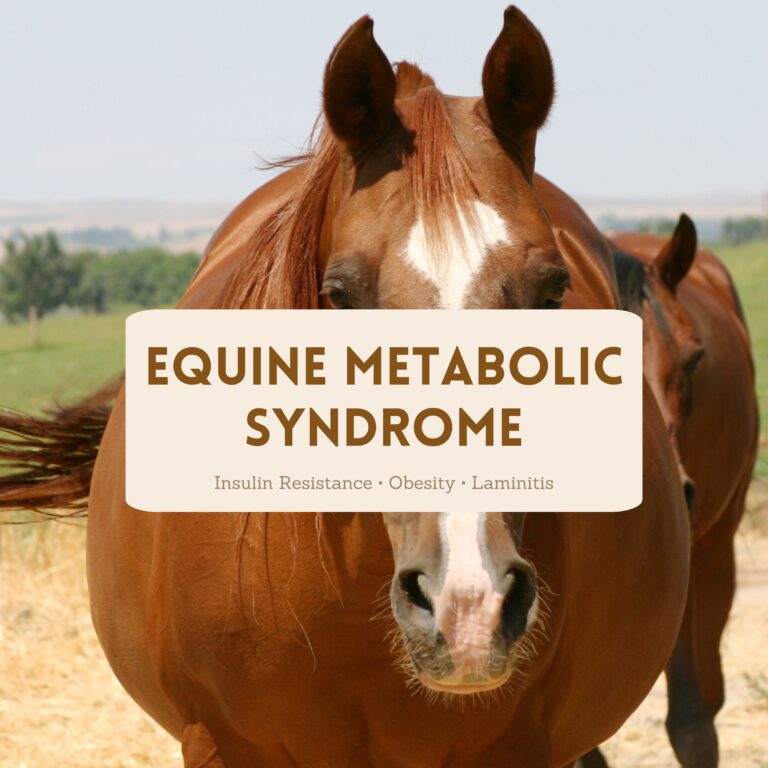Preventing Equine Metabolic Syndrome

Obesity, Laminitis and Insulin resistance.
Equine Metabolic Syndrome is a significant health concern that requires careful management, especially during the summertime. EMS is characterized by obesity, insulin resistance, and an increased risk of laminitis. Horses at risk of Equine Metabolic Syndrome (EMS) typically include:
- Ponies, Donkeys and Miniature Horses: These breeds are particularly prone to EMS.
- Certain Breeds: Breeds such as Morgans, Paso Finos, Saddlebreds, Mustangs and some Warmbloods are more susceptible.
- Overweight or Obese Horses: Horses carrying excess weight have a higher risk of developing EMS.
- Horses with a History of Laminitis: Horses that have previously suffered from laminitis are more likely to develop EMS.
- Older Horses: While EMS can occur at any age, older horses are at greater risk.
During the summer, managing EMS involves monitoring grazing times to avoid high-sugar grasses, providing a balanced diet low in non-structural carbohydrates and ensuring regular exercise to help maintain a healthy weight.
Click below to learn more about EMS from Platimum Performance.
